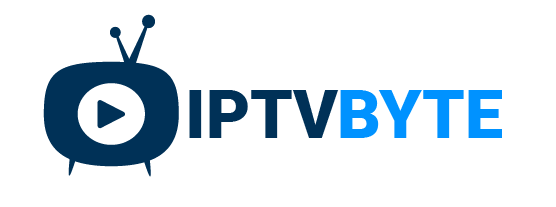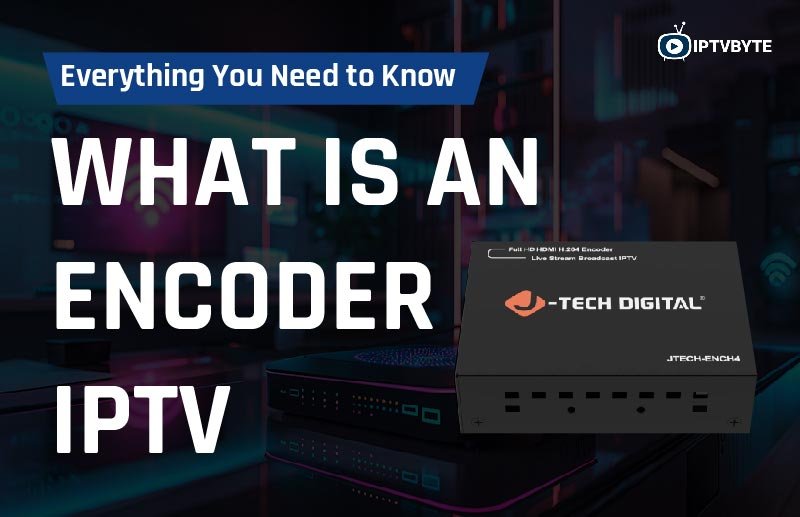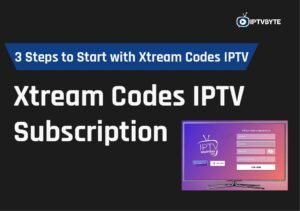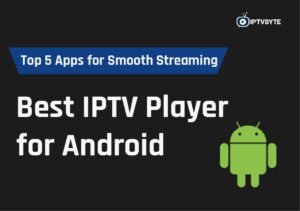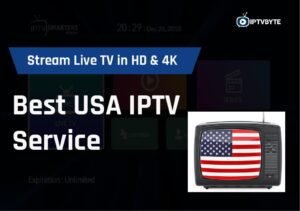Introduction
When it comes to delivering high-quality live or on-demand TV over the internet, few tools are as essential as an Encoder IPTV. Whether you’re an IPTV provider, a tech enthusiast, or simply curious about how IPTV works behind the scenes, understanding what an encoder is—and why it matters—is crucial.
In this guide, we’ll break down everything you need to know about encoder IPTV systems, how they work, why they’re used, and how they can drastically impact your streaming quality.
Key Takeaways
An Encoder IPTV is essential for converting raw video into a streamable IPTV format
There are hardware and software encoders depending on your needs and budget
The better the encoder, the higher the streaming quality
Look for key features like H.264/H.265, multi-output support, and low latency
Encoding is one of the backbones of IPTV broadcasting success
What Is an Encoder IPTV?
An encoder IPTV is a device or software that converts raw video signals (from a camera or satellite feed) into digital formats suitable for streaming over IPTV platforms. The encoding process compresses and formats video content using standards like H.264 or H.265, allowing smoother delivery across the internet without buffering or quality loss.
In simpler terms: it transforms your video into a streamable format your viewers can watch on Smart TVs, mobile devices, or IPTV apps.
Why IPTV Needs Encoding
Without encoding, you can’t broadcast video over IP networks efficiently. IPTV content is streamed in real time, which requires:
Compression – to reduce file size
Formatting – to match player compatibility
Stability – to avoid buffering or crashes
A solid encoder IPTV setup ensures that your live sports, VOD libraries, or 24/7 channels reach your audience in high resolution, with minimal delay.
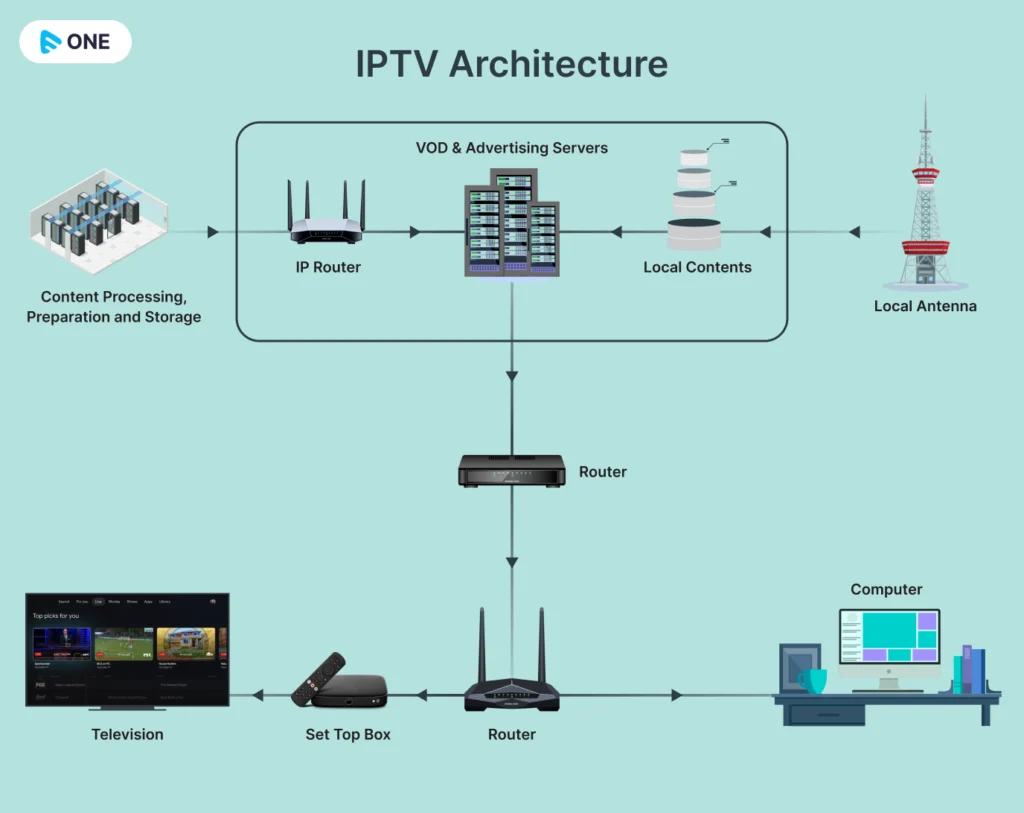
Types of IPTV Encoders
1. Hardware Encoders
These are applications like OBS Studio, XSplit, or vMix that run on your computer to encode video streams.
Pros:
Cost-effective
Easy to update
Flexible for creators
Cons:
CPU intensive
Not ideal for large-scale streaming
2. Software Encoders
These are physical devices used by IPTV providers or broadcasters. They’re more reliable and better suited for professional-grade streaming (e.g., live TV, pay-per-view events).
Pros:
Stable for 24/7 broadcasting
High-quality output (up to 4K)
Low latency
Cons:
Expensive
Less flexible
Encoder IPTV vs Decoder IPTV : Key Differences
What Makes Them Unique?
In the streaming industry, Encoder IPTV and decoders are like yin and yang. Raw video is compressed by an encoder into a streamable format, like H.264, so that it can be sent over the internet. In the opposite direction, a decoder—usually found in a set-top box or app—unpacks the data so your device can play it. To put it briefly, decoders grow while encoders shrink.
Additionally, their methods are diametrically opposed: decoding is all about signal processing, whereas encoding concentrates on media compression. They are separate yet interconnected pieces of the streaming puzzle.
Complementary Roles in Streaming
In the IPTV workflow, these tools team up beautifully. The encoder sits at the source, turning live footage or pre-recorded files into a stream. The content delivery network whisks it to viewers, where the decoder takes over, rendering it playable. Together, they make live stream encoding a reality—think of a soccer match beaming to your TV in real time.
Understanding both helps you optimize your setup, whether you’re broadcasting or just watching. They’re the dynamic duo behind every IPTV success story.
Key Features to Look For in an Encoder IPTV
If you’re planning to use or invest in an encoder IPTV system, here’s what to look out for:
✅ H.264 / H.265 support
✅ Bitrate control (CBR/VBR)
✅ RTMP, HLS, or MPEG-TS output formats
✅ Multi-channel support
✅ Low latency mode
✅ Scalability (for growing IPTV services)
✅ Device compatibility (Smart TVs, phones, set-top boxes)
How Encoder IPTV Improves Streaming Quality
The right encoder doesn’t just “compress video.” It optimizes it. That means:
Sharper visuals even on slower internet
Smoother frame rates for live sports or gaming
Better sync between audio and video
Compatibility with all major IPTV apps and devices
Using a poor encoder—or none at all—leads to blurry images, sound delays, and a flood of buffering complaints from users. Choosing a powerful encoder IPTV helps avoid all of that.
FAQs about Encoder IPTV
What’s the best encoder IPTV setup in 2025?
An encoder compresses and converts raw video, while a transcoder takes already-encoded video and re-processes it for different resolutions or bitrates (adaptive streaming).
Can I use a software encoder for a professional IPTV service?
You can, but software encoders are better for small-scale operations. For commercial IPTV, hardware encoders are more reliable and robust.
Do all IPTV services need an encoder?
Yes. Any IPTV provider streaming live channels, events, or VOD must encode video content to deliver it across networks efficiently.
What’s the best encoder IPTV setup in 2025?
It depends on your needs, but top-rated solutions include AJA HELO Plus, Magewell Ultra Stream, and software like vMix for hybrid setups.
Final Thoughts
A good encoder IPTV system is more than just a technical requirement—it’s the foundation of a successful IPTV experience. Whether you’re setting up a personal IPTV server or running a large-scale IPTV business, encoding is what ensures your content is watchable, high-quality, and professional.
Skipping the encoder step or choosing a weak solution will only hurt your brand and drive users away.
Conclusion
In the world of IPTV, content is king—but delivery is everything. An encoder IPTV gives your content the polish it needs to stand out, keep viewers engaged, and grow your audience. If you’re serious about offering premium IPTV services, investing in the right encoding setup is non-negotiable.
Want to get started with a reliable IPTV platform that already uses top-tier encoding technology?
👉 Check out IPTVBYTE today – where performance meets quality.
